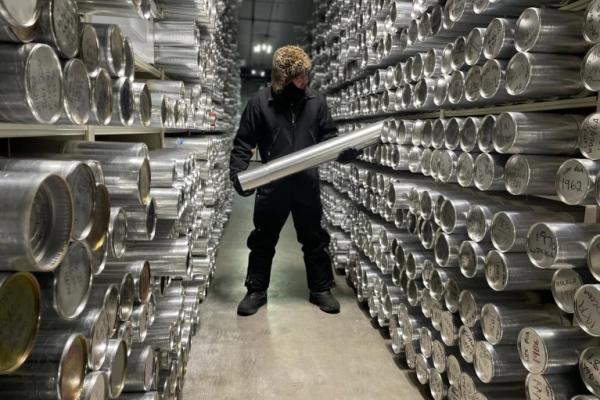U.S. National Science Foundation Ice Core Facility to be Upgraded

This week, the journal Nature published an article that details an important upgrade at the U.S. National Science Foundation Ice Core Facility (NSF-ICF) in Denver, Colorado. The NSF-ICF, built in 1993, is a repository for approximately 25,000 meters of ice core. The facility plans to replace its outdated hydrochlorofluorocarbon (HCFC) refrigerants, which are harmful to the ozone layer, with environmentally friendly transcritical CO2 systems. This upgrade is in response to global environmental mandates established by the 1987 Montreal Protocol and its amendments, aimed at protecting the ozone layer and reducing greenhouse gas emissions.
The chosen replacement, transcritical CO2, is selected for its efficiency and minimal environmental impact, marking a significant advancement in refrigeration technology for critical scientific storage. This change reflects a broader trend among major ice-core facilities worldwide, which are transitioning to less harmful refrigerants. The NSF-ICF project is set to commence in August and is expected to be completed by early 2026, demonstrating a proactive approach in adapting to newer, sustainable technologies.
Ellen Mosley-Thompson, a Distinguished University Professor of Geography and Senior Research Scientist at The Ohio State University's Byrd Center, is following the progress of the NSF-ICF. The Byrd Center's Cold Storage Ice Core Facility, which houses cores from the Ice Core Paleoclimatology research group co-led by Mosley-Thompson, also contends with outdated refrigerants. As such, she is particularly interested in the insights gained from the NSF-ICF's experience.
Curt LaBombard, curator of NSF-ICF, notes that the Denver team is eager to assist others and share their experiences. This cooperative spirit reflects a broader commitment within the scientific community to protecting the ice cores and the environment by "future-proofing" the research infrastructure.
Learn more by visiting "Freezer holding world's biggest ancient-ice archive to get 'future-proofed.'"
